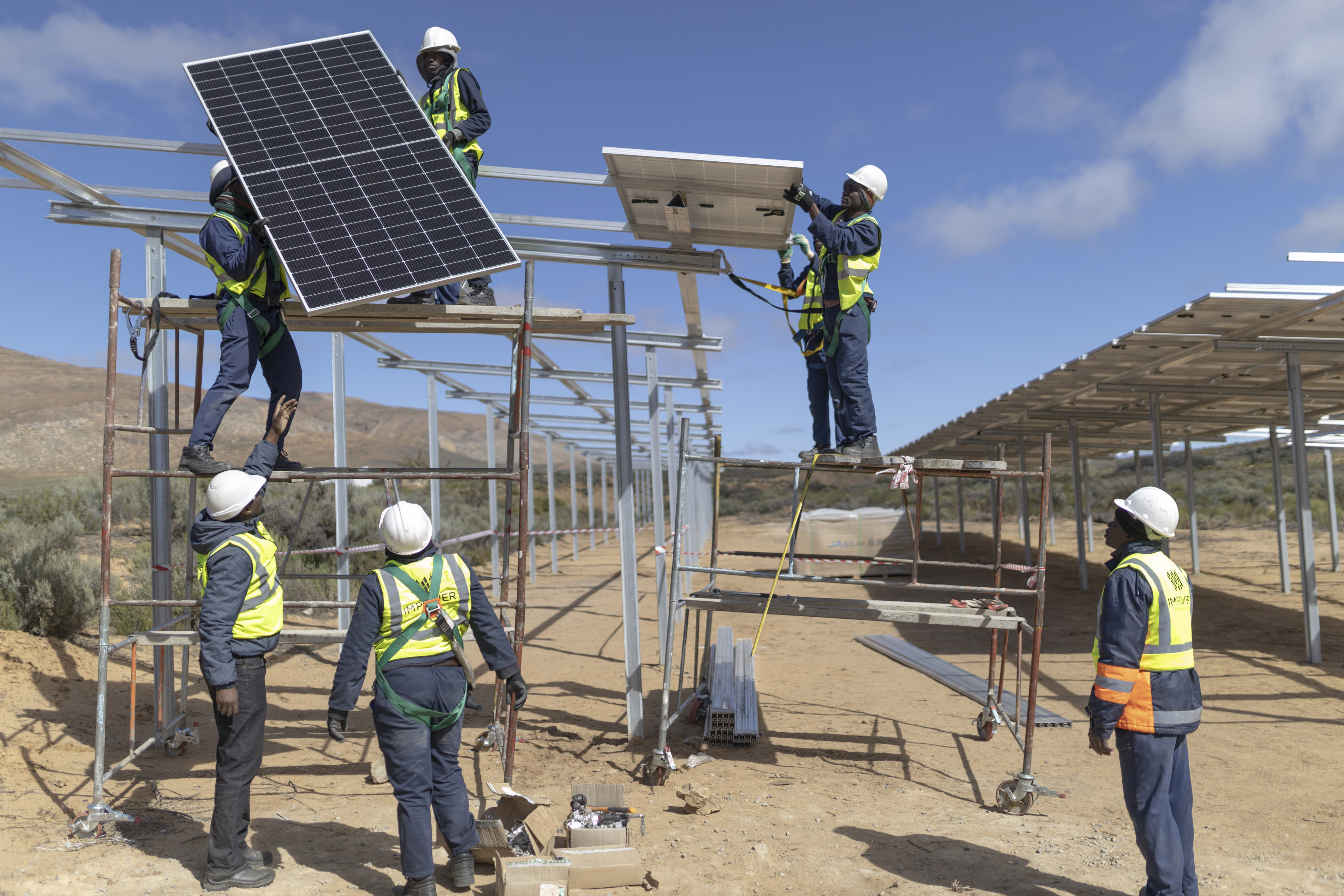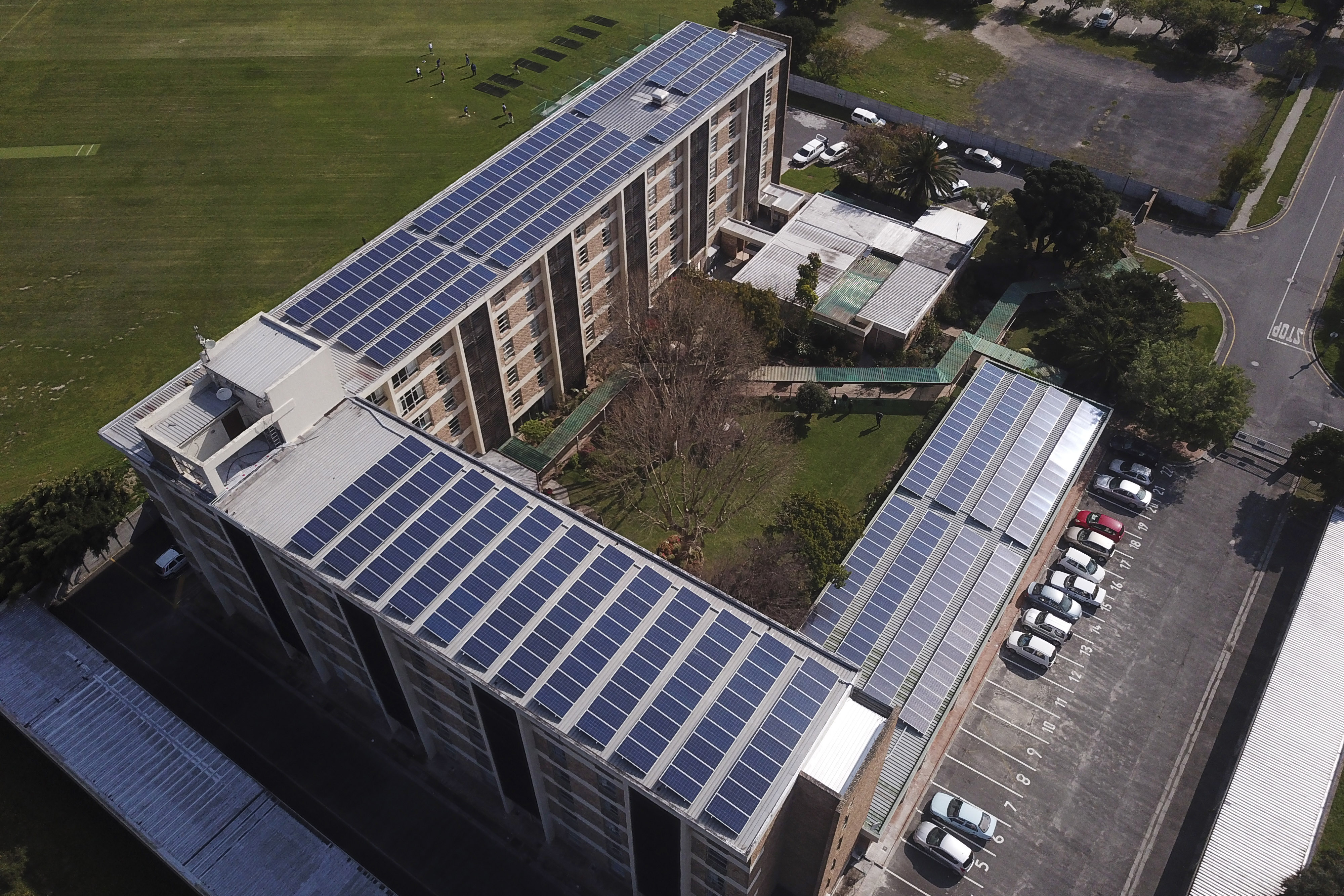President Ramaphosa made the announcement in his weekly newsletter on Monday.
“Work will soon be completed on a pricing structure that will allow customers to sell surplus electricity from rooftop solar panels into the grid,” Ramaphosa said.
This is a policy decision that is as welcome as it is overdue, appearing on the long list of relatively simple reforms that should have been implemented long ago.
While hardly a panacea, the announcement comes against the backdrop of Eskom’s worsening woes, with rolling blackouts now in effect a permanent feature of South African life, wreaking havoc on households and businesses alike, big and small.
One of the consequences has been robust demand for solar panels.
Solana Energy, a solar provider, said in December last year that South African households had imported over R2.2-billion worth of solar panels in the first five months of 2022, according to a report in BusinessTech.
One can only imagine that such demand is currently surging – anecdotal evidence points to a proliferation of solar panels on rooftops in middle-class suburbs. They are appearing like mushrooms after a heavy rain in this correspondent’s Johannesburg neighborhood.
But so far, the only incentive on this front has been the rising intensity of load shedding and the consequent disruptions to daily life. It is a slow-motion privatisation of power generation that mirrors other trends of consumers who can absorb the costs of providing essentials for themselves in the face of South Africa’s failing state. Healthcare, education and security come to mind.
 Workers install solar panels at the Karoo Fresh Produce (Pty) Ltd farm in Groenfontein, South Africa, on 24 August 2022. (Photo: Guillem Sartorio / Bloomberg via Getty Images)
Workers install solar panels at the Karoo Fresh Produce (Pty) Ltd farm in Groenfontein, South Africa, on 24 August 2022. (Photo: Guillem Sartorio / Bloomberg via Getty Images)
Visit Daily Maverick's home page for more news, analysis and investigations
Eskom simply cannot meet existing power demand, and despite the clear urgency of the situation, efforts to get additional capacity for the grid have proceeded at a glacial pace under Minerals and Energy Minister Gwede Mantashe.
So, hopefully the president’s words will soon translate into action – something that has been noticeably absent during his presidency.
This is low-hanging fruit that can yield badly needed incentives for households and businesses to make the investment to provide energy reliability for themselves, while taking pressure off a strained grid and even providing it with a little extra electricity.
We are in a crisis situation where every bit helps.
And, of course, it’s green energy, even if the process of mining the required metals and building and installing solar panels also has an environmental impact. After all, it’s not like they grow on trees and are delivered to your rooftop by storks.
This correspondent hails from the eastern Canadian province of Nova Scotia, and such a system is in place there.
“You’ll save money on your energy costs over time by earning bill credits for the energy you deliver back to the grid,” Nova Scotia Power says on its website.
Trust me, Nova Scotia is not famed for its abundant sunshine and warmth. If it can be done there, it doesn’t take an electrical engineer to figure out that it can be done in South Africa. DM/BM




 Workers install solar panels at the Karoo Fresh Produce (Pty) Ltd. farm in Groenfontein, South Africa, on Wednesday, Aug. 24, 2022. Sun Exchange invites investors to buy solar cells at a project of their choice, where the solar energy customers pay a fee for use, with part of that paid back to investors in either South African rand or Bitcoin. Photographer: Guillem Sartorio/Bloomberg via Getty Images
Workers install solar panels at the Karoo Fresh Produce (Pty) Ltd. farm in Groenfontein, South Africa, on Wednesday, Aug. 24, 2022. Sun Exchange invites investors to buy solar cells at a project of their choice, where the solar energy customers pay a fee for use, with part of that paid back to investors in either South African rand or Bitcoin. Photographer: Guillem Sartorio/Bloomberg via Getty Images 